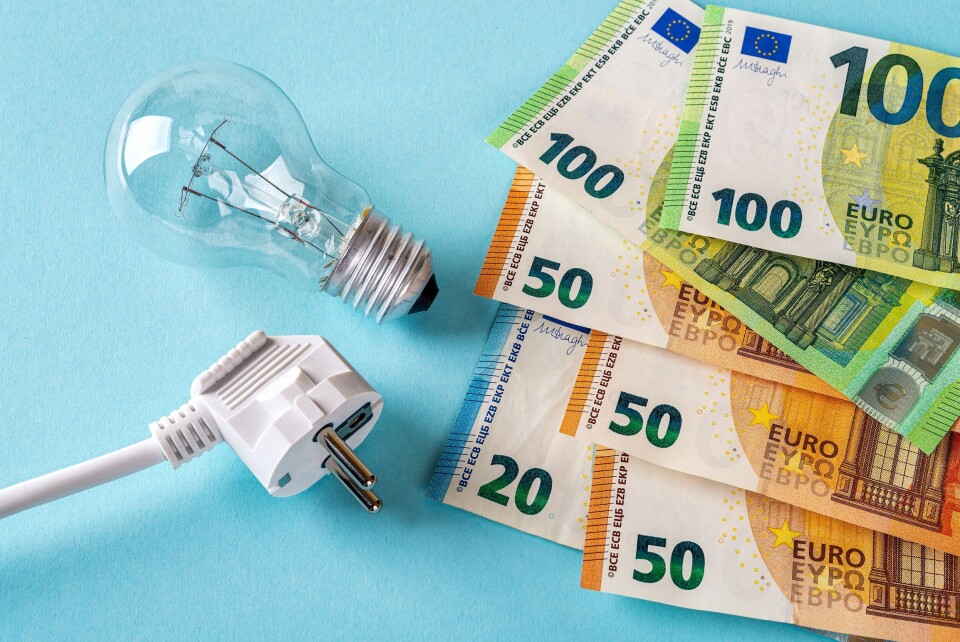-
How much are gas prices in France rising in April - and why?
It comes after six consecutive monthly rises. Try these tips to reduce your bills
-
Graph: How do French electricity prices compare with other EU countries and UK
Costs have steadily risen across the last decade
-
Extra aid for people buying an electric car in France
The aid applies to multiple vehicle manufacturers in France
Electricity bills to rise in France as price rise protection reduced
They are expected to increase by around €150 per year on average for households on regulated tariffs

Consumers in France on a regulated electricity tariff are set to see their bills increase by 10% as the government gradually cuts back its price rise protections.
An electricity ‘energy shield’ system – bouclier tarifaire in French – which came into force in 2021 has been a barrier against rising energy costs on the world markets, capping electricity price rises in France at a certain percentage.
Several mechanisms are in place by which the companies are compensated by the government for this.
However, from August 1, it has been agreed that prices can be hiked again by 10%, increasing the average household bill by around €12 per month or €150 per year (from €1,700 to €1,850 a year).
The changes concern more than 20 million households and small business owners who are covered by the shield.
The electricity energy shield is expected to remain in place until 2025 although it is being gradually ‘phased out’, with the amount of protection to customers (and cost to the government) being reduced.
The gas energy shield ended at the start of July.
End to the energy shields
Typically, electricity prices in France rise early in the year and then again in summer. For regulated tariffs, the rises are set by the independent Commission de Régulation de l'Energie (CRE) in agreement with the government, and using certain formulas.
In autumn 2021, to counter soaring energy prices on the world markets, the government introduced the ‘energy shield’.
In early 2022 bills the rise was limited to 4% (the CRE said the rise would otherwise have been 35%). There was then no rise until January 2023, when a 15% was allowed.
August’s price hike has been allowed due to the gradual reduction in the tariff’s protection.
Previously, the Conseil d’analyse économique (economic advisory body to the government) had recommended that the shield be dropped for the wealthiest households in France, but remain in place for modest households.
Read more: Date outlined for when France will end price freezes on energy bills
€14 billion in savings
The reduction of the shield is part of wider fiscal measures from the government to reduce government spending and debt.
Reducing the energy shields – for both gas and electricity – will save around €14 billion by the end of 2027, Finance Minister Bruno Le Maire said in April.
Although the gas shield has already finished – thanks largely to the stabilisation of prices after fluctuations in 2022 – the electricity shield will stay in place “until 2025”, said Mr Le Maire.
His colleague Gabriel Attal, Delegate Minister for Public Accounts, stated the scheme may end by the close of 2024.
Economists such as Xavier Ragot back the calls from the CAE to cut price protections for the wealthiest households, but keep it in place for modest ones.
Cutting the shield for wealthy households would save the government “between €5 and €6 billion” on its own, he said.
For its part, the CRE said the tariff has been of immeasurable benefit in preventing runaway costs.
It predicts that if the shield was not put in place, bills would have risen by 100% in 2023.
What can I do?
In France, it is relatively easy to change energy suppliers, and you may benefit from a better deal if not on the EDF tariff.
You can read our 2022 article on changing electricity supplier – although the changes for this coming August may affect the attractiveness of EDF’s regulated tariff.
You can also use online comparison tools to find the best energy supplier, such as the government’s tool here.
If not on a regulated tariff, you can also try cutting down your electricity usage by avoiding keeping devices on unnecessarily, and unplugging them when not in use.
This includes both appliances like your washing machine, but also your WiFi and television.
Related articles:
How you could save hundreds of euros on annual energy bills in France
Rising energy bills in France: we recap the aid available in 2023
























